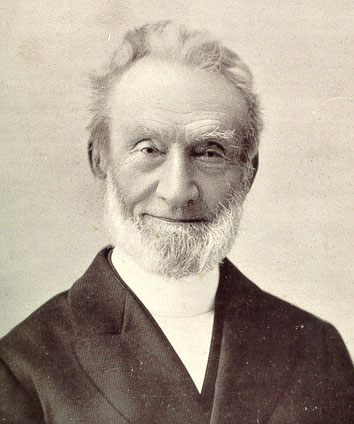My wife and I make a practice of reading together every night before we go to bed. We’ve recently been going through the autobiography of George Müller—the guy who built several orphanages despite having no paycheck, never directly asking for money, and never going into debt—and I thought there were a couple passages worth noting in light of today’s money-hungry preachers and theologies. Müller writes:
January 1, 1840. About one o’clock this morning, I received a sealed envelope with some money in it for the orphans. The individual who gave it was deeply in debt, and I was aware that she had been repeatedly asked by her creditors for payment. I resolved to return the envelope without opening it because no one has a right to give while in debt. I did this although I knew there was not enough on hand to meet the expenses of the day.
Can you imagine a preacher doing this today? “No one has a right to give while in debt,” Müller says. Today, we have preachers who encourage people who are in debt to give on credit in order for God to bless them and help get them out of debt. People are told that God’s interest rate is higher than that of the world, so giving to God (which of course means giving to the preacher or church) is the best investment one could make. Not so, says Müller. Rather, Müller expects that people get out of debt as quickly as possible and then—and only then—give money to others.
I agree with this principle entirely. If I give while in debt, I’m not giving my money away, I’m giving my creditors’ money away—it’s not my money to give. (Actually, if these prosperity preachers really believe their theology, this means that people who give on credit are actually heaping up blessings for their creditors, since it’s their money that’s being given.) But if I am not in debt, I can legitimately give my own money—and because I’m not bound to interest, I am free to give more money than I could have if I had debts to pay. More Müller:
How much should you give of your income? God lays down no rule concerning this point. We should give cheerfully and not because it is required.
Again, how remarkably different this is from the bulk of (at least Evangelical) preachers in the USA today, who insist that God demands 10% of everyone’s income (gross, not net!) be paid to a church or preacher. Müller (who lived before this emphasis on tithing developed) understood things rightly—the one requirement of giving laid down in the New Testament is that no one give as though it were required (or under compulsion). The principle of giving that Paul establishes in his churches is not the tithe but equality, based on an allegorical reading of manna in the Law—the person who gathers much should share with the person who gathers little, since it’s all going to rot in the end (2 Cor 8).
I am convinced that if churches chose to follow this example—pushing for people to get out of debt before they give a cent, encouraging members who have means to help debt-ridden members out of debt, and abandoning the teaching of tithing so many churches have put in place—they would be significantly stronger, both spiritually and financially. Just from a basic economic standpoint, communities with less debt will always be stronger than those with more.
